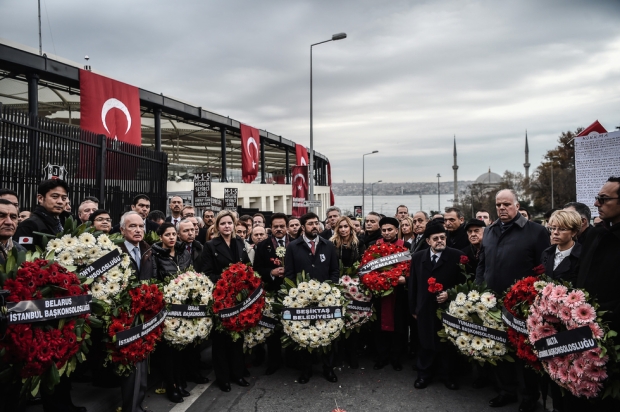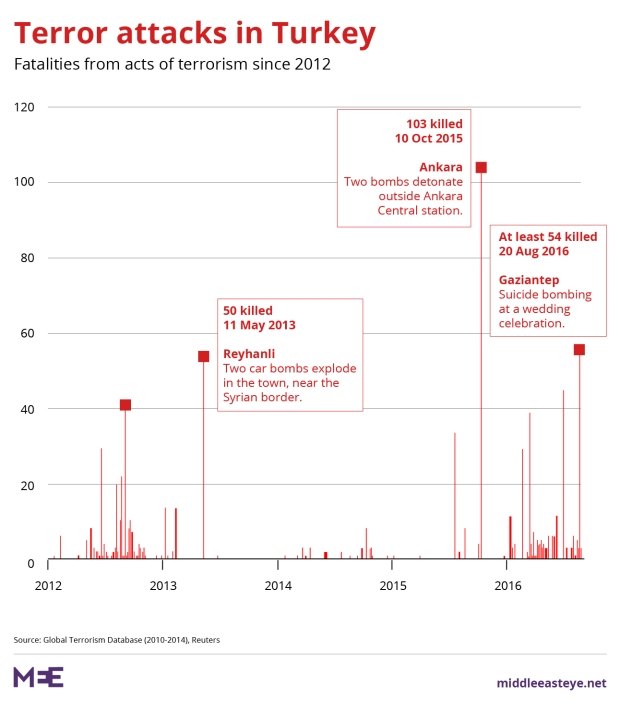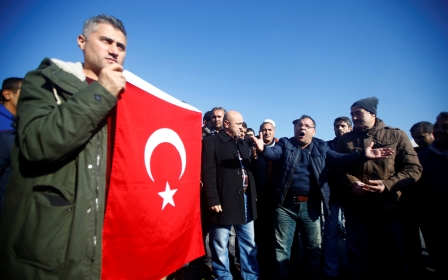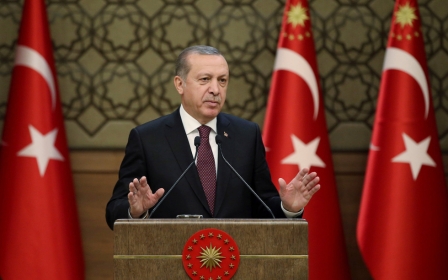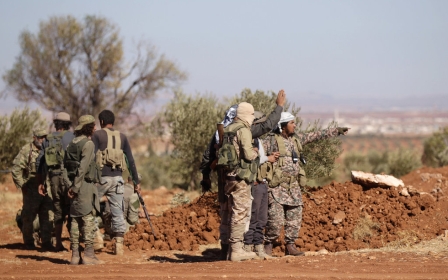Istanbul bombs: Death toll rises as Turkey detains scores for Kurdish links
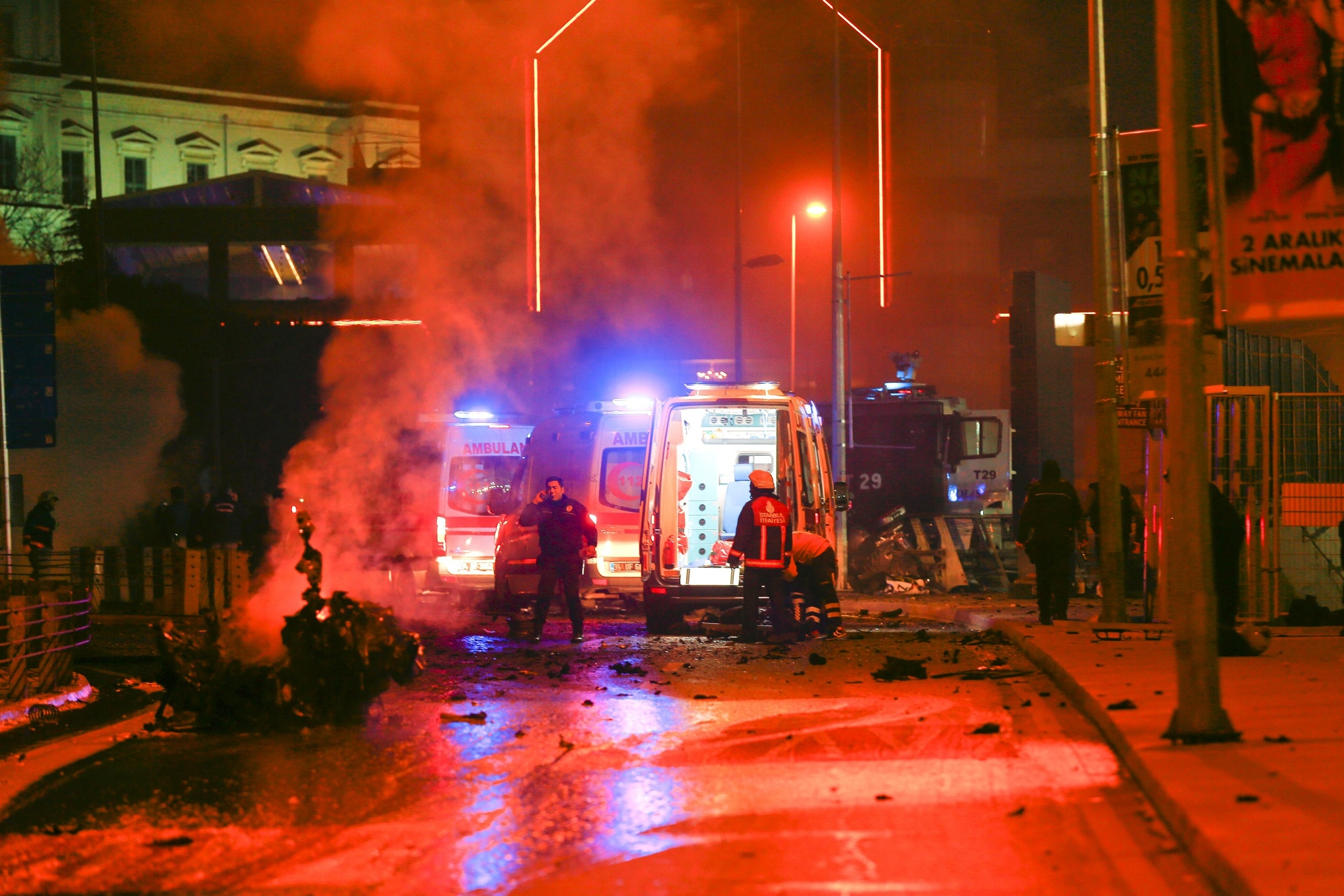
Turkey detained 235 people over alleged links to Kurdish militants in nationwide raids on Monday, two days after twin bombings killed 44 people and wounded about 150 outside an Istanbul soccer stadium.
The toll from Saturday's attacks, which struck an Istanbul football stadium and a nearby park, rose to 44 on Monday, health minister Recep Akdag said.
Turkish jets pounded targets in northern Iraq, with the military saying it had hit "separatist terrorist organisation members", referring to the outlawed Kurdistan Workers' Party (PKK).
The armed forces said it struck targets in the Zap region of northern Iraq destroying the militants' headquarters as well as nearby shelters and gun positions.
And Turkish police detained 198 pro-Kurdish Peoples' Democratic Party (HDP) officials over alleged links to Kurdish militants in a countrywide operation, state news agency Anadolu reported.
The actions are likely to raise fears that Ankara is going further in its crackdown and acting out of revenge against pro-Kurdish politicians who stand accused of links to the PKK - a charge that the HDP denies.
The weekend's bloodshed was claimed by the Kurdistan Freedom Falcons (TAK), seen as a radical offshoot of the PKK.
TAK has claimed three major strikes this year in Istanbul and Ankara, killing a total of at least 73 people.
Since the collapse of a ceasefire in July last year, Ankara has vowed to wipe out the PKK and has conducted several military operations against the group.
READ: Why has the PKK turned to urban terrorism
There have been frequent clashes between security forces and PKK militants and almost daily attacks on the military carried out by the group's fighters in the southeast.
Sea of flowers
On Monday, senior diplomats from various European countries paid their respects outside the Besiktas stadium, laying wreaths that added to the sea of flowers left by mourners.
Most of those killed by the car bomb outside the stadium were officers who had been policing a top flight game against Bursaspor.
The stadium is located on the shores of the Bosphorus, close to the Ottoman-era Dolmabahce Palace that houses the premier's office. It is also about a kilometre from the busy Taksim Square, a magnet for tourists.
READ: Turkey mourns its dead: 'When will they leave us alone?'
Besiktas is one of Istanbul's most popular football clubs, and its fans are known for their anti-establishment views. They famously played a big role in the 2013 protests against Erdogan, who was prime minister at the time.
In a statement, Besiktas vowed to "stand firm against the vile attackers who will never achieve their goal".
Minutes after a car bomb, a suicide bomber blew himself up by a group of police at a nearby park.
Of the victims, 36 were police officers and eight were civilians, the health minister told parliament. Another 166 people were wounded in the two blasts.
In claiming the attack, TAK said the Turkish people were not their "direct target", accusing the government of "fascism" against the Kurds.
Revenge fears
On Sunday, interior minister Suleyman Soylu vowed that "sooner or later we will have our revenge. The arm of the law is long."
But his remarks drew criticism, with Murat Yetkin, editor-in-chief of Hurriyet Daily News, penning an editorial in which he hit out at the government's lack of "deep strategy... other than fiercely reacting".
Yetkin also warned that each attack was used by the government "for a further tightening of measures, which turns into yet more limitations on freedoms but falls short of stopping acts of terror".
The twin attacks drew international condolences and condemnation, with NATO chief Jens Stoltenberg denouncing the bloodshed as "horrific" and the US embassy in Turkey tweeting: "Our hearts and prayers are with the people of #Istanbul tonight."
READ: Ankara bombing: PKK, TAK ties come under scrutiny again
German Chancellor Angela Merkel spoke with Erdogan by phone, with the two agreeing to step up anti-terror cooperation.
"The chancellor asked the president to convey her sympathies to the victims' loved ones and offered help, if needed, to care for those who were injured," spokeswoman Ulrike Demmer said in a statement.
Israel's Prime Minister Benjamin Netanyahu also condemned the bombings but said he expected Turkey to reciprocate when Israel also came under attack, referring to Erdogan's support for the Palestinian group Hamas.
New MEE newsletter: Jerusalem Dispatch
Sign up to get the latest insights and analysis on Israel-Palestine, alongside Turkey Unpacked and other MEE newsletters
Middle East Eye delivers independent and unrivalled coverage and analysis of the Middle East, North Africa and beyond. To learn more about republishing this content and the associated fees, please fill out this form. More about MEE can be found here.


